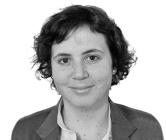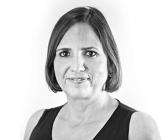We are celebrating the 10-year anniversary of Debats d’Educació by giving the educational community the opportunity to air its views
How can equity and quality be reconciled in education?
Nowadays, reducing failure at school has become one of the main priorities for our education system. However, in our immediate context, problems of academic performance can still be identified among our young people, too often in the environments that are least favoured from a socioeconomic and cultural point of view.
However, investment in educational formulas attempting to inclusively cover the situations of greatest disadvantage is not only fairer, it also turns out to be economically more efficient. The return becomes clear immediately when you consider the unacceptable cost of leaving school early, which notably reduces people’s chances of lifelong learning and enormously limits their capacity to react to situations like the economic crisis we are currently suffering.
So, the efficiency of the structure and operational dynamic of education systems can no longer be measured without taking into account their capacity to alleviate initial inequalities and eliminate the barriers that could prevent the majority of students, and also those in the most vulnerable situations, from being able to progress to the end of secondary education and have open access to specialisation options in higher education.
The most advanced education systems – the ones that, in fact obtain higher shares of academic performance – have already understood that these results only provide the maximum benefit for society if they are obtained through formulas making it possible to maintain the balance between quality and fairness. With this conviction, they try to promote the type of strategy that can ensure that all youngsters, not just a few, will be able to stay in the education system and acquire the competences that will be essential for developing as active, participative citizens in 21st-century society under conditions of equality of opportunity.
The 3 things they have learned...
- 1I believe investment in public education has to be high and is a priority at all educational stages
- 2I am concerned that the public and professionals are not horrified by school segregation
- 3What is observed in practice and in research is deficient, inconsistent teacher training













 The texts published on this website are, unless otherwise indicated, covered by the Creative Commons Spain Attribution 3.0 licence. You may copy, distribute, transmit and adapt the work, provided you attribute it (authorship, journal name, publisher) in the manner specified by the author(s) or licensor(s). The full text of the licence can be consulted here:
The texts published on this website are, unless otherwise indicated, covered by the Creative Commons Spain Attribution 3.0 licence. You may copy, distribute, transmit and adapt the work, provided you attribute it (authorship, journal name, publisher) in the manner specified by the author(s) or licensor(s). The full text of the licence can be consulted here: